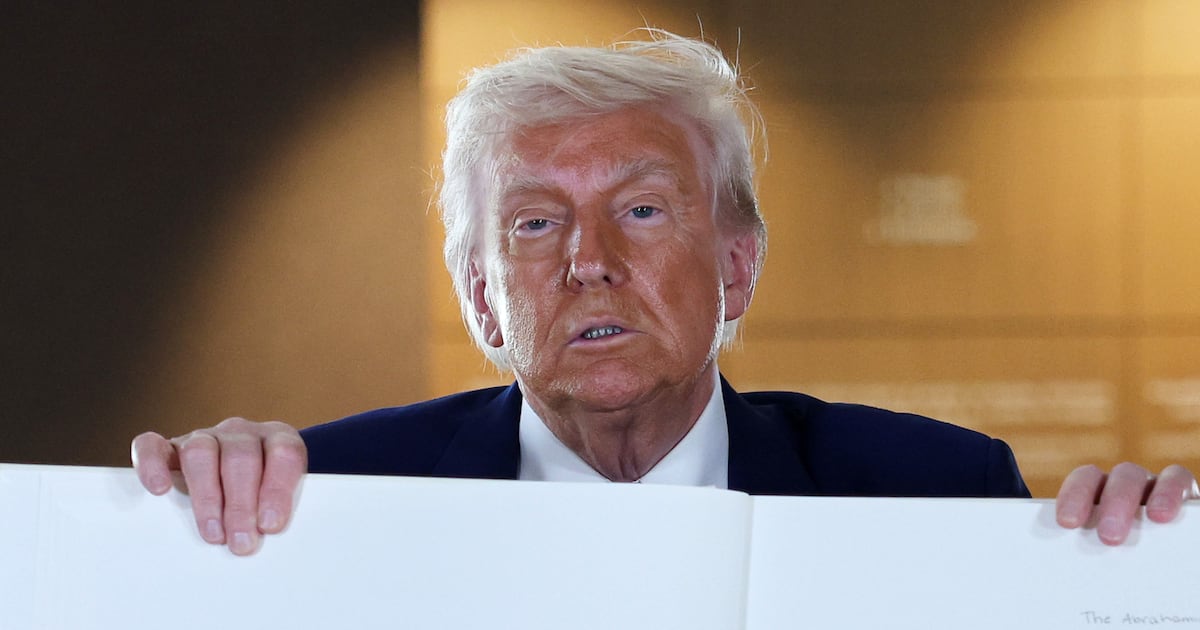
The arrests in Pakistan last week, with U.S. assistance, of the Afghan Taliban's military commander and now of a second top Taliban leader, Mullah Abdul Salam, the "shadow" governor of Kunduz, are a big step forward in the fight against the insurgent group. But they also help demolish a novel argument defenders of the Bush-Cheney approach to counterterrorism have been pushing in recent weeks: that the Obama administration's decision to shut down the CIA's secret prisons, its "enhanced" interrogation program, and rendition of prisoners to countries that torture has so limited its choices that it is now killing suspects in the field instead of detaining them.
Obama has greatly intensified drone attacks in Pakistan. But there is no evidence that this has anything to do with Obama's alleged reluctance to capture terrorists alive.
Shortly before the announced arrests in Pakistan, former Bush speechwriter Marc Thiessen charged that the Obama administration's "escalation of the 'Predator War' [in Pakistan] comes at the very same time he has eliminated the CIA's capability to capture senior terrorist leaders alive and interrogate them for information on new attacks," adding: "Today, the Obama administration is no longer attempting to capture men like these alive; it is simply killing them." In contrast, Thiessen argues, the Bush administration "worked with Pakistani and other intelligence services to hunt down senior terrorist leaders and take them in for interrogation." He cites as examples men like Abu Zubaydah, Khalid Sheikh Mohammed, Ramzi bin al-Shibh, Walid bin Attash, Riduan Isamuddin (aka 'Hambali'), among others. Oddly, The Washington Post also chimed in last week with a story about a September strike by U.S. Special Forces against an al Qaeda leader in Somalia. The strike, the Post suggested, shows that Obama is "emphasiz[ing] kills over captures" because "options for where to keep U.S. captives have dwindled."
• Patrick Hennessey: The Marja Media WarTargeted killings are plainly controversial. The drone attacks in Pakistan have caused widespread public outrage because of reports of civilian casualties. And the Obama administration ought to be much more clear about the legal basis for, and limits on, using deadly force in these circumstances (for example, it could say that targets must be active combatants in an ongoing armed conflict, either on a traditional battlefield or hiding in lawless areas where arrest is not feasible). But even before the recent arrests in Pakistan, the notion that Obama was killing terrorists to avoid detaining them—and that his predecessor's policies were "humane" in comparison—was outlandish.
To prove such a claim, one would have to show not just that the Obama administration has launched such strikes more frequently than the Bush administration did, but that it has been killing suspected al Qaeda members in situations where Bush would have tried to catch them alive—and that the Bush administration's heralded "live captures" took place in circumstances where Obama has instead ordered targeted strikes. But most of the "high value" al Qaeda members that the CIA detained under Bush were taken into custody in places where ordinary law-enforcement operations were not only possible, but the only practical option. Khalid Sheikh Mohammed, for example, was hiding in a house in Rawalpindi, a city in the heart of Pakistan, when Pakistani authorities arrested him, and then turned him over to the CIA. Abu Zubaydah was arrested in the Pakistani city of Faisalabad; Ramzi bin-al-Shibh and Walid bin Attash were taken in Karachi; "Hambali" was picked up by police in Ayutthaya, Thailand. Obviously, the Bush administration was not going to launch missiles into the populated centers of Pakistan and Thailand; it would have sought to arrest these men whether the CIA prisons existed or not.
When the Bush administration pinpointed what it considered "high value" targets in more lawless places, where it was not possible to send police to make an arrest, it, too, used deadly force. A CIA drone killed several al Qaeda suspects in an isolated region of Yemen in 2002, and drone attacks have been reported in Pakistan since 2004. U.S. forces also struck suspected terrorists in Somalia in the Bush years, and there is no record of the Bush CIA snatching anyone alive from that country's ungoverned areas, even though it had secret prisons to put them in.
The main difference between the two administrations is that Obama has greatly intensified drone attacks in Pakistan. But there is no evidence that this has anything to do with Obama's alleged reluctance to capture terrorists alive. The Bush administration also rarely tried to arrest Taliban and al Qaeda members in Pakistan's tribal areas—in fact, it mostly left them alone, naively trusting Pakistani dictator Pervez Musharraf to confront militants, despite the failed deals he kept cutting with them.
Last year's strike in Somalia also doesn't back up claims that Obama is ordering kills because he lacks detention options. The man targeted, Saleh Ali Nabhan, was on the FBI's most wanted list and could easily have been held and prosecuted in the U.S. criminal system. Obama's critics may dislike detaining terrorist suspects in federal prisons or interrogating them without torture. But the option clearly exists and the Obama administration happens to think it is a good one. It would not be logical for it to have someone killed simply to avoid using it.
The truth is that both Bush and Obama have judged that there are places in the world where it is hard to capture suspected terrorists alive without placing U.S. forces at undue risk. There's a good argument to be had about the legal and practical merits of using deadly force in these situations. But to say that Obama's use of targeted killings is something new, and that the Bush policy of disappearances and torture was a kind and gentle alternative, is profoundly disingenuous.
Tom Malinowski is the Washington Advocacy director for Human Rights Watch.




